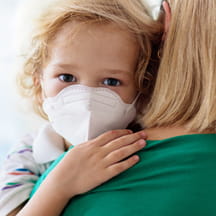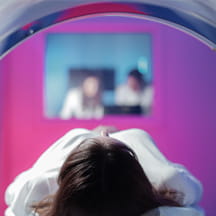To date, the novel coronavirus (COVID-19) has largely had a more severe effect on the adult and elderly populations than children. But children's hospitals are increasingly on alert for a mysterious—albeit rare—illness related to COVID-19.
The Centers for Disease Control and Prevention (CDC) released a Health Advisory on May 14 to alert health care providers about Multisystem Inflammatory Syndrome in Children (MIS-C) associated with COVID-19. MIS-C may present with Kawasaki disease-like features and can cause severe inflammation in various parts of the body, including the skin, eyes and internal organs. Experts still don't know exactly what causes MIS-C, but many of the children with the syndrome have tested positive for COVID-19. MIS-C can be serious—even deadly—but most children who have been diagnosed with this condition have recovered.
New York is U.S. epicenter for MIS-C
The World Health Organization (WHO) reports clusters of MIS-C from countries across Europe and North America, but—for now—U.S. cases have been concentrated in New York. The state's Department of Health is investigating 170 reported cases of MIS-C in New York, including three deaths. Of these cases, 92% tested positive for COVID-19 or its antibodies.
Maria Fareri Children's Hospital in Valhalla, New York, has treated at least 20 of those patients, and its leaders are collaborating with other experts around the globe to address the illness.
"We're participating in several national and international work groups that are trying to cluster all the cases together and understand what's going on, why it happens and how best to treat it," says Michael Gewitz, M.D., physician-in-chief, Maria Fareri Children's Hospital. "These are generally children's hospital groups where we're working together with various specialists for the treatment of inflammatory diseases."
Children's hospitals should stay on alert for possibility of syndrome cases
The ongoing discussions and shared learnings from these work groups are positively impacting MIS-C treatments, according to Gewitz. But he says it's hard to predict when the frequency of MIS-C cases will subside—Maria Fareri Children's Hospital is still seeing new patients almost daily—so it's critical for children's hospitals to remain vigilant.
"Emergency rooms and primary care groups need to be on alert for this disease to be present in some of their kids," Gewitz says. "And they need to understand that it can rapidly go downhill from a child who looks reasonably well to becoming critically ill within a few hours."
CDC continues to work with health care providers in gathering and analyzing information to better understand MIS-C. Because much is still unknown about why some children have gotten sick with MIS-C while others have not, Gewitz says it's important to consider even when COVID-19 isn't initially apparent.
"A high degree of attention needs to be paid to the possibility—especially in communities where COVID itself may not be that prevalent—that their kids may test negative for COVID," Gewitz says. "But they almost all test positive for the antibodies to COVID. So, they had some experience with it, even if they hadn't been sick from it."


